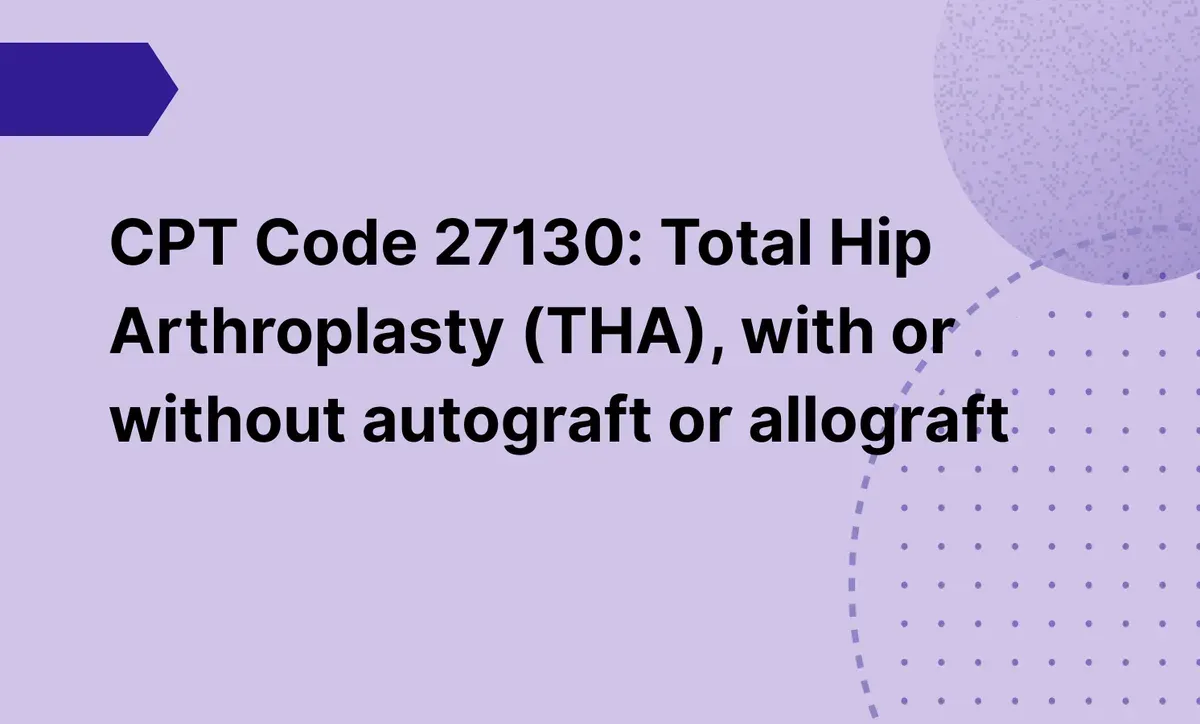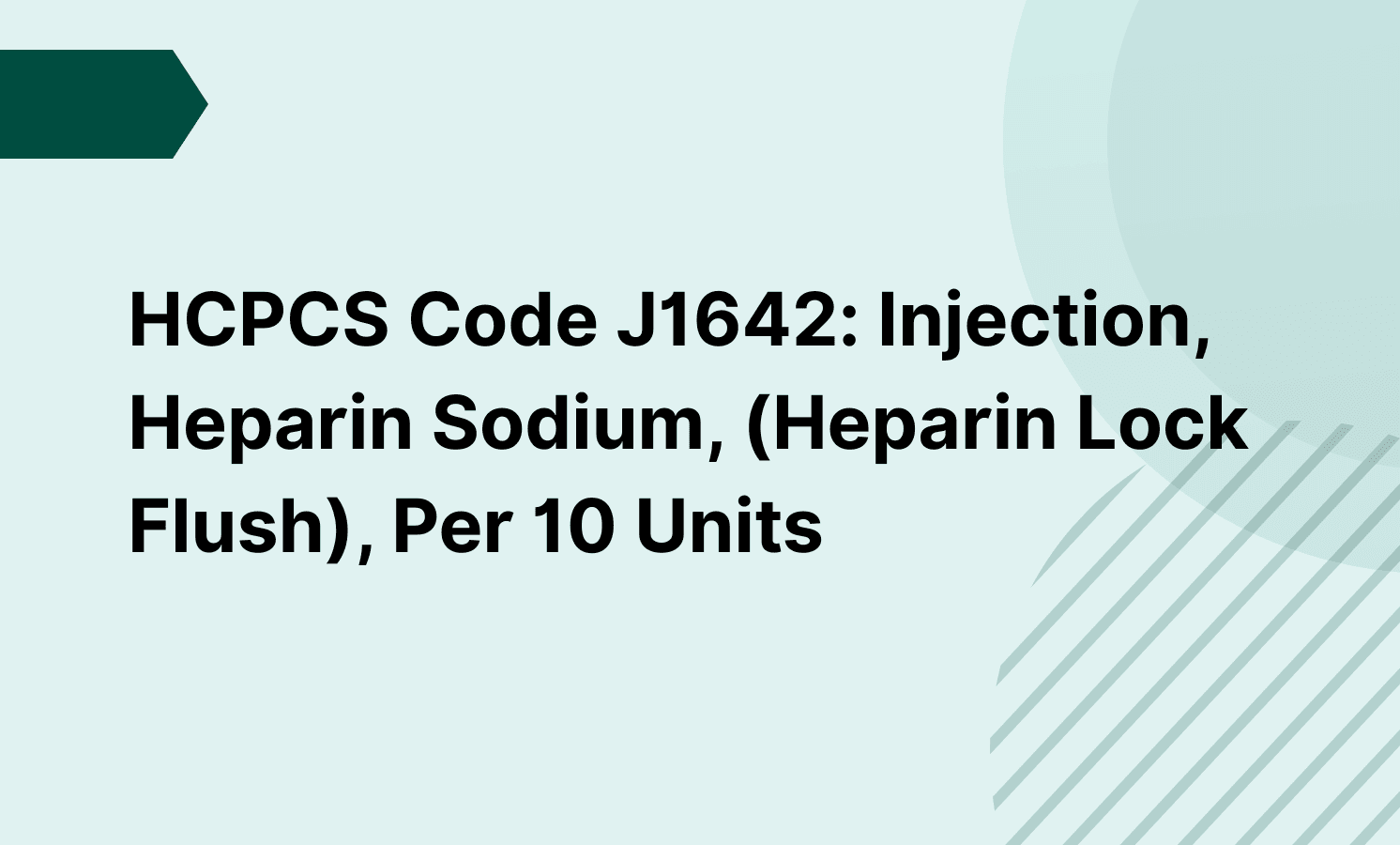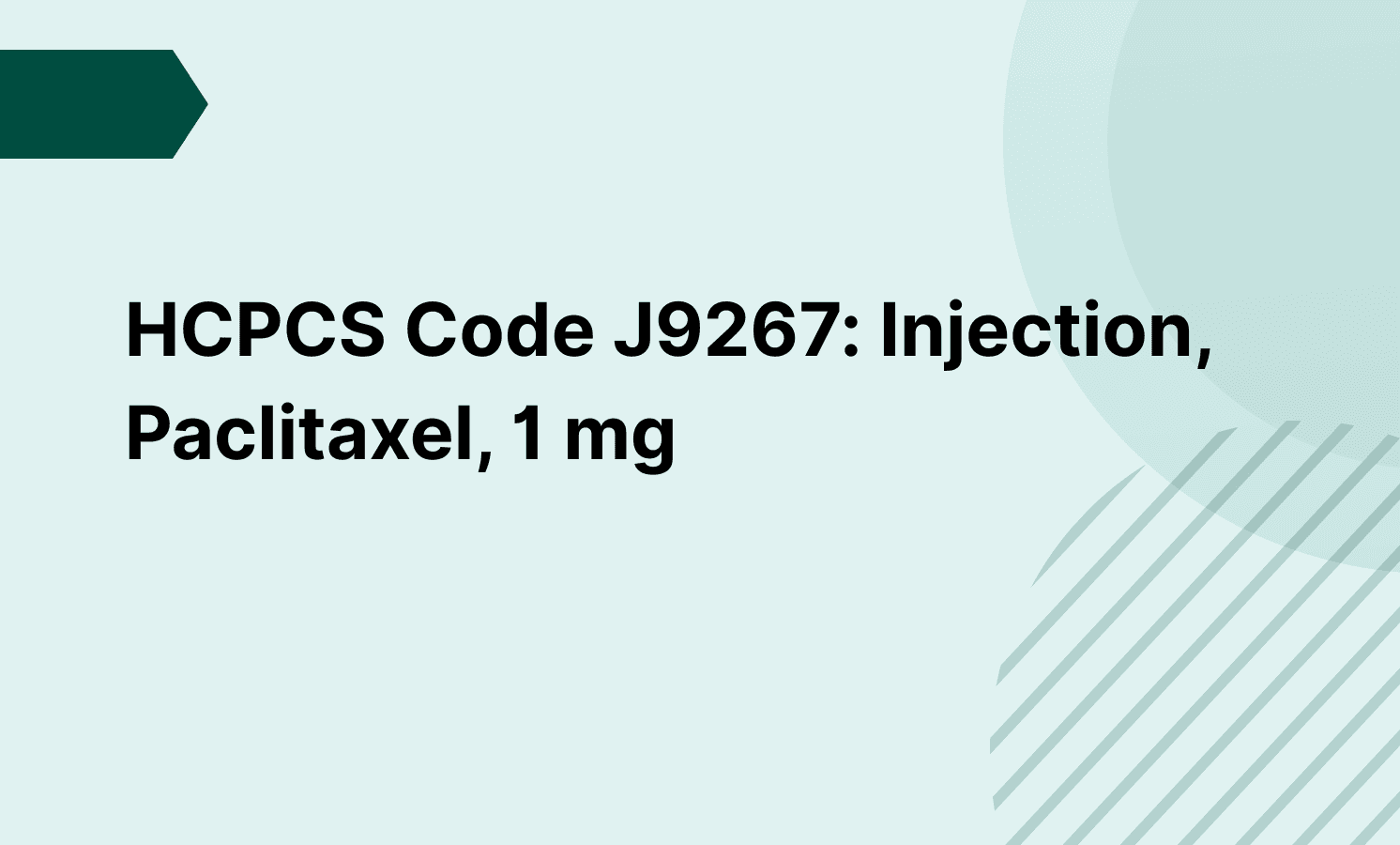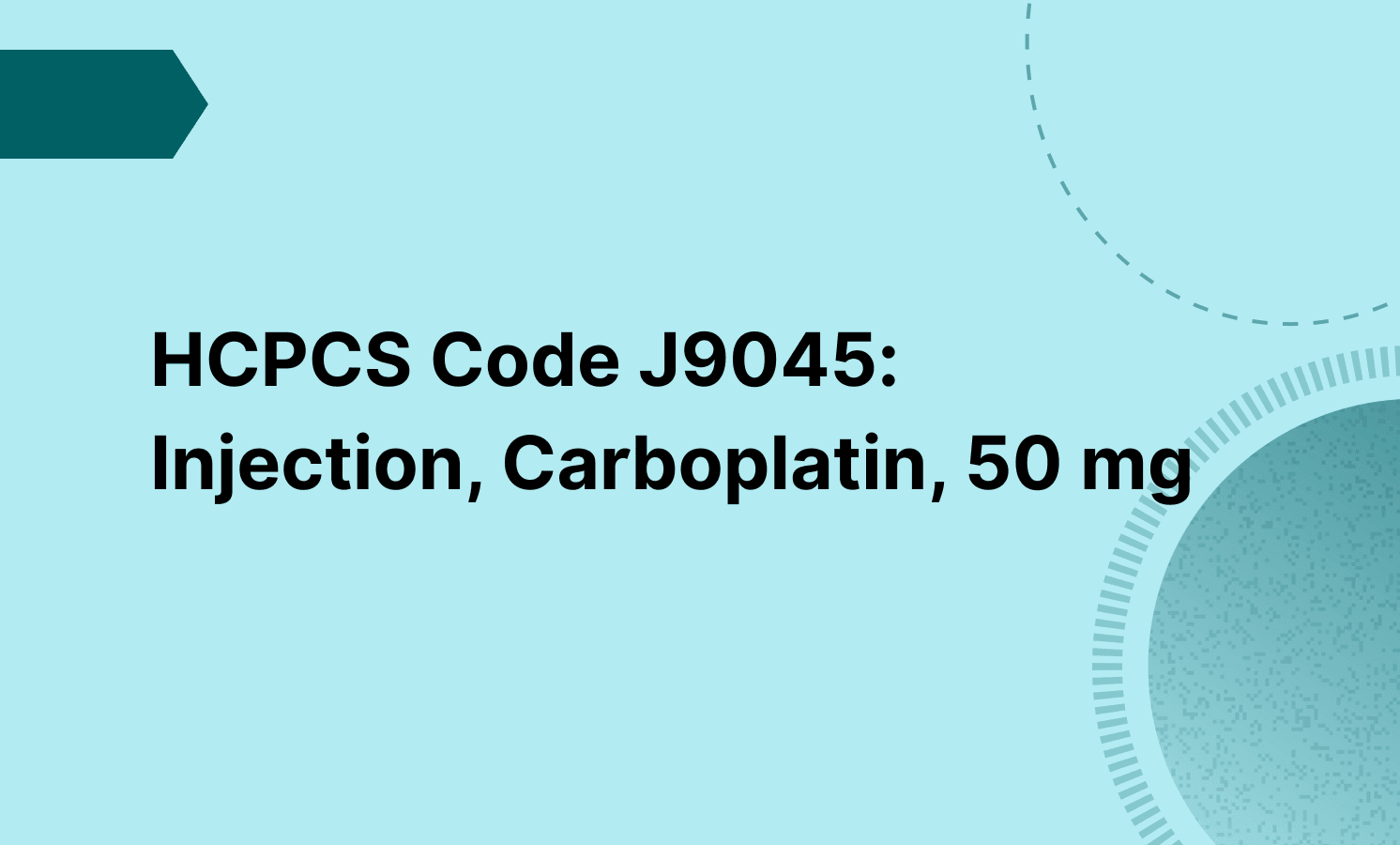When submitting a claim for CPT code 27130 (total hip arthroplasty), various modifiers may be required based on the details of the procedure.

CPT Code 27130: Total Hip Arthroplasty (THA), with or without autograft or allograft
Learn about CPT 27130 coding and reimbursement insights to enhance your billing accuracy and optimize your practice. Read the article now!
Frequently asked questions
CPT codes 27130 and 27132 both describe total hip arthroplasty but differ in context. Code 27130 is for a primary hip replacement, while 27132 is for converting a prior hip surgery to a total hip replacement.
Yes, total hip arthroplasty (CPT 27130) is increasingly performed in outpatient settings, especially for healthy individuals with low complication risk. However, coverage policies vary by payer and jurisdiction, so it's essential to verify with Medicare administrative contractors or commercial plans before scheduling.
EHR and practice management software
Get started for free
*No credit card required
Free
$0/usd
Unlimited clients
Telehealth
1GB of storage
Client portal text
Automated billing and online payments






